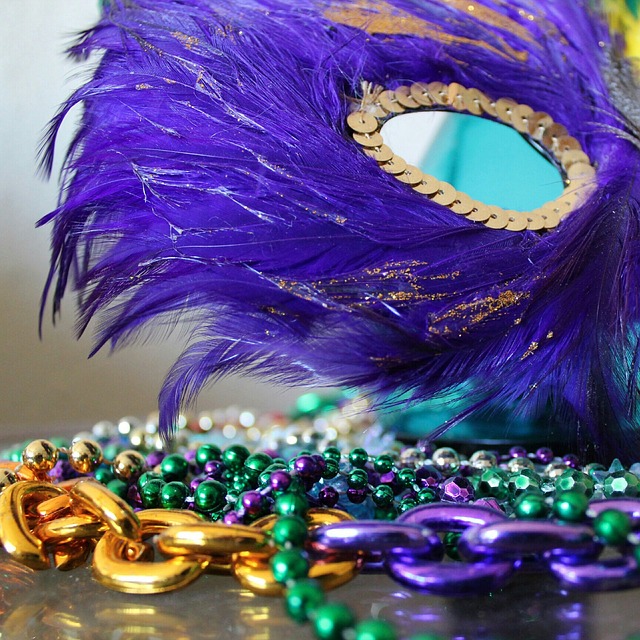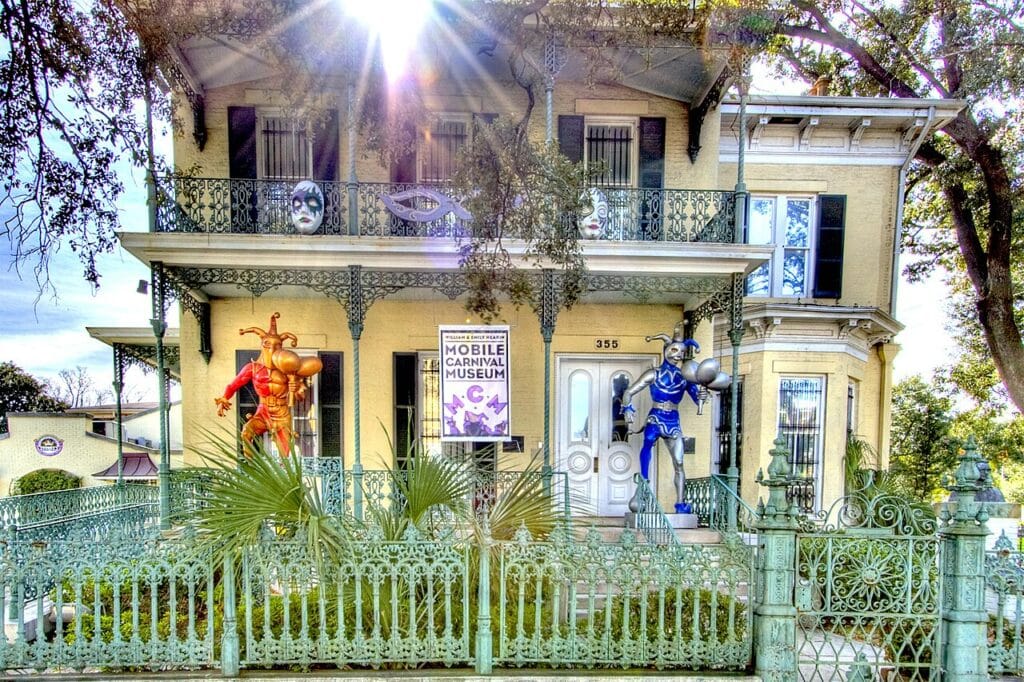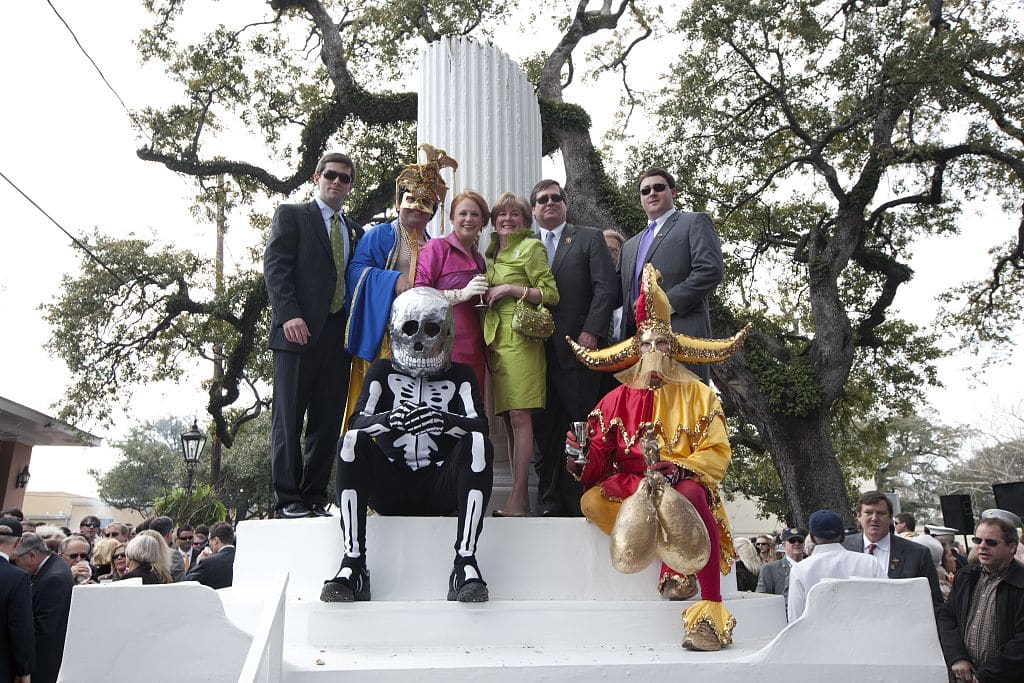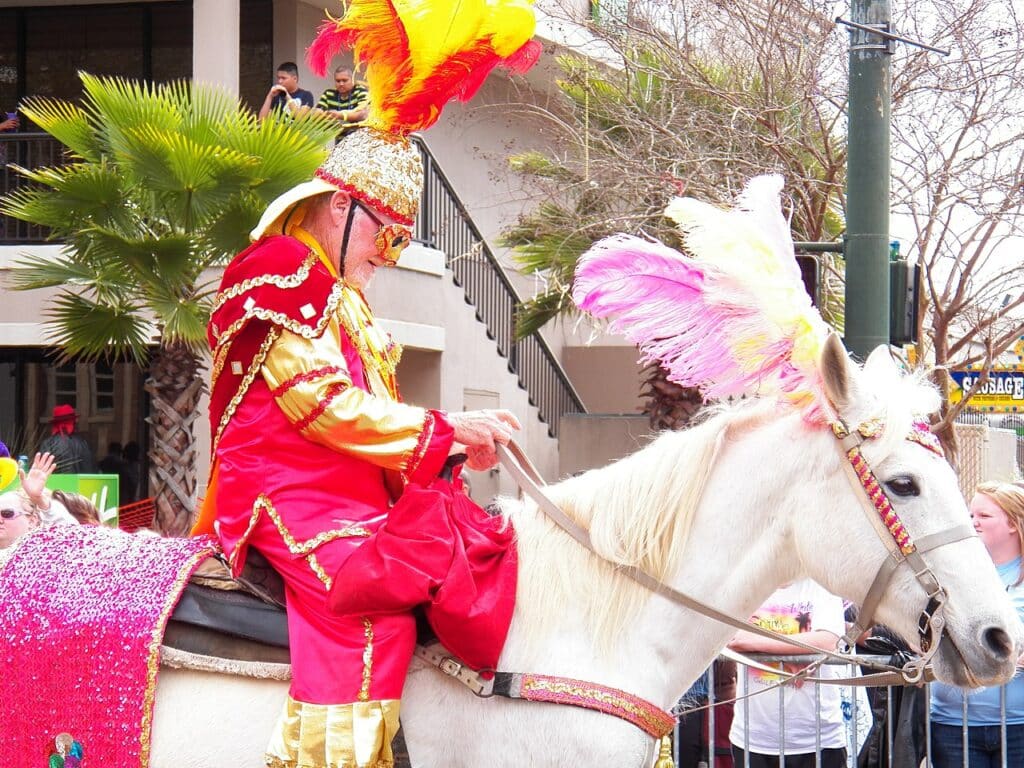Seeking and Finding the Truth About Mardi Gras in Mobile, Alabama

Posted January 30, 2024
Hint: You won’t find it in Louisiana.
“We really cherish all our Mardi Gras traditions here. We’re very proud of them.” It was that sentence uttered by the woman at the museum’s front desk that got my attention. I had certainly never thought of anything about Mardi Gras as a cherished tradition. This gave me an inkling that I was about to get a serious education for my $8.00 admission. To find the truth about Mardi Gras and its traditions, travelers need to visit the Mobile Carnival Museum in downtown Mobile, Alabama.

My guide went on to say, “New Orleans has the larger Mardi Gras. Theirs is five times the size of ours, but ours is family friendly. You’d get arrested in Mobile if you tried half the stuff that they get away with on Bourbon Street. In fact, if you travel to other neighborhoods in New Orleans, you’ll find other Mardi Gras celebrations that are very different from the one on Bourbon Street.”
My visit began with an eight-minute movie that told the story of how this famous party began in 1703 with the French pioneers. The version that we are more familiar with today began in 1830 when a man and his cohorts woke up the Mayor of Mobile with cowbells. His group (the Cowbellian de Rakin Society) became the first mystic (i.e. secret) society in America. In 1842, a second society was formed, the Striker’s Independent Society. The Strikers are still operating today.
From these two original groups, dozens of other mystic societies were formed and each has developed parades, parties and traditions over the generations. Today, there are over 80 mystic societies that participate in Mobile’s Mardi Gras.

In Mobile, The Camellia Ball is held on Thanksgiving weekend and that signals the start of Mardi Gras season, which then runs until Spring. Neighborhoods host gatherings of their own. In 2020, the traditional gatherings could not take place due to Covid-19. Mobile residents would not be deterred. They created “Yardi Gras.” I lieu of crowded parades, neighbors elaborately decorated their yards and residents drove through the city visiting the various neighborhoods to see their historic traditions honored from afar.
Perhaps one of the most important Mardi Gras traditions is the election of the King and Queen. In Mobile, there are actually two kings and two queens. The Mobile Area Mardi Gras Association (MAMGA) elects King Alexis and the Mobile Carnival Association (MCA) elects King Felix.
When it became obvious to me from the photos in the museum why there were two sets of royalty, I looked the guide in the eye and asked if the groups are segregated.
“Well, obviously, in the old days, that’s how it started,” she replied honestly. “But today, they don’t want to combine for two reasons. First, they each have their own traditions going back hundreds of years that they can’t bear to part with now. Second,” she said with a belly laugh, “They’d have to give up 50% of their parties!” She went on to say, “There is deep respect between the groups today. Each royal court attends the others’ coronation festivities.”
The carnival museum displays photos of prior Kings and Queens. In many cases, grandmothers, mothers, aunts and daughters from the same family have carried the title. In addition, there are sample parade floats so that guests can get a sense of the true size of these colorful contraptions.
The most striking (and memorable) displays at the museum are the royal capes, crowns and scepters. Each one more elaborate than the last, the handiwork seen in these pieces (the capes in particular) is a competition in itself. Teams of designers and seamstresses design, sew, bead and embellish the impossibly elaborate creations for months in preparation for coronation day. The capes often tell the family history of the wearer or include symbols of their hobbies and associations, such as fraternity or sorority membership. When displayed in groups, as they are at the Mobile Carnival Museum, they can be awe-inspiring. I confess to feeling my breath catch in my throat more than once at the sight of them.
Mardi Gras, at its core is about harmless communal fun. As a reminder to his subjects, in 2020, King Felix III (whose real name is Sumner Greer Adams, Jr.) announced a royal decree at his coronation. It read in part:
“…that treasonous rogue whose name is inhibition, let it be known far and wide that he is the mortal enemy of revelry and merriment and that his presence within the boundaries of our kingdom is intolerable.”
While a lack of inhibition may be the signature of the Bourbon Street version of Mardi Gras. In Mobile, there are children’s parades, neighborhood parades, banquets and dances that celebrate family traditions, regional legacies and community bonds with a pageantry worthy of 300 years of folklore. The truth about Mardi Gras is that it started in Mobile and is part legend, part myth and all revered tradition.

Find and Book Your Accommodations in Mobile, Alabama
Join the community!

Join our community to receive special updates (we keep your private info locked.)




